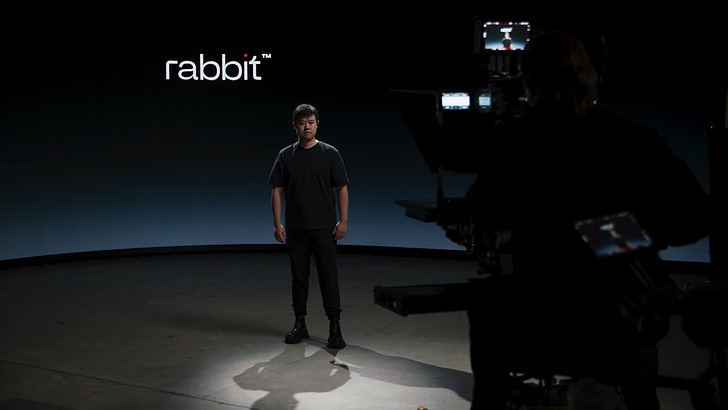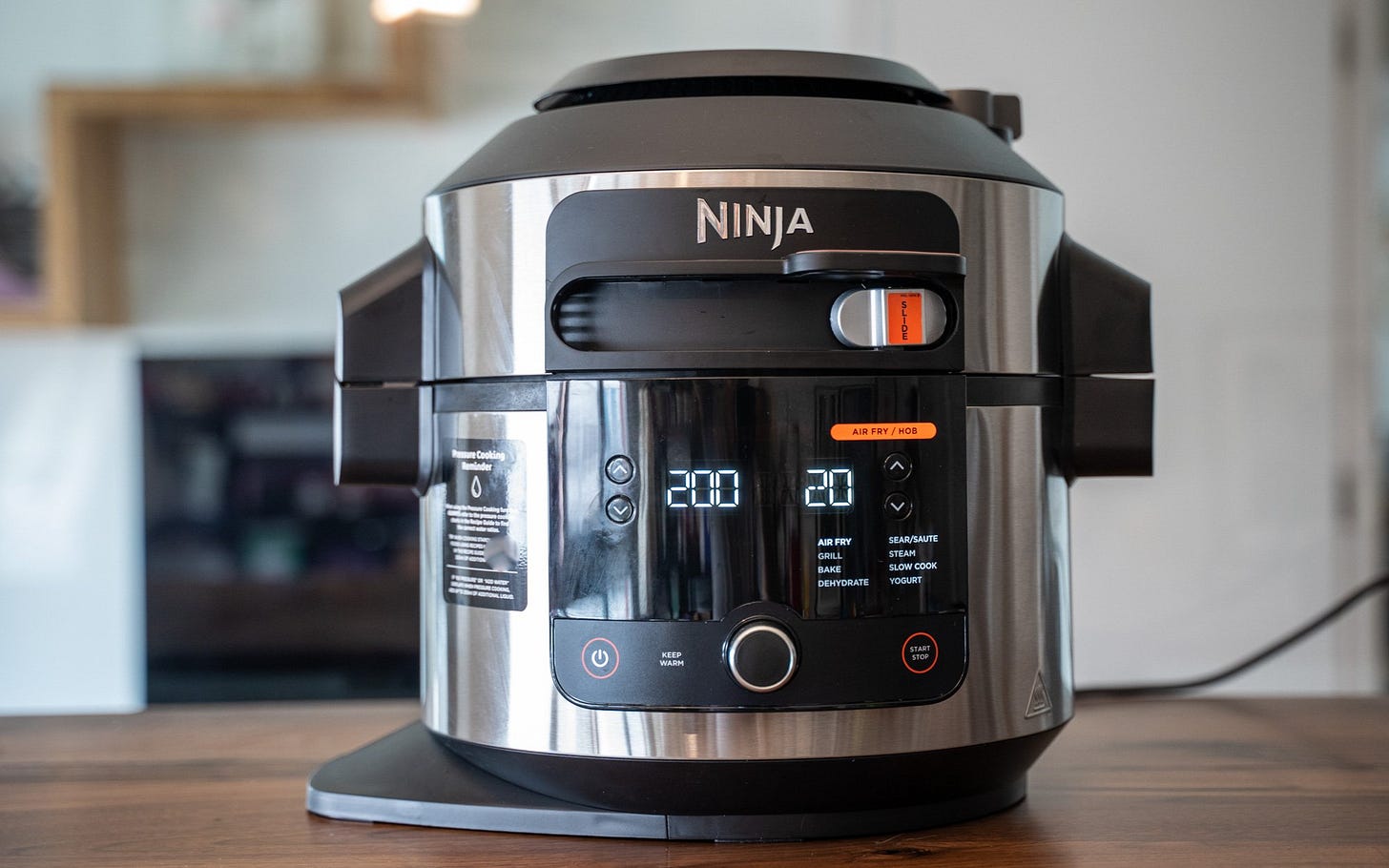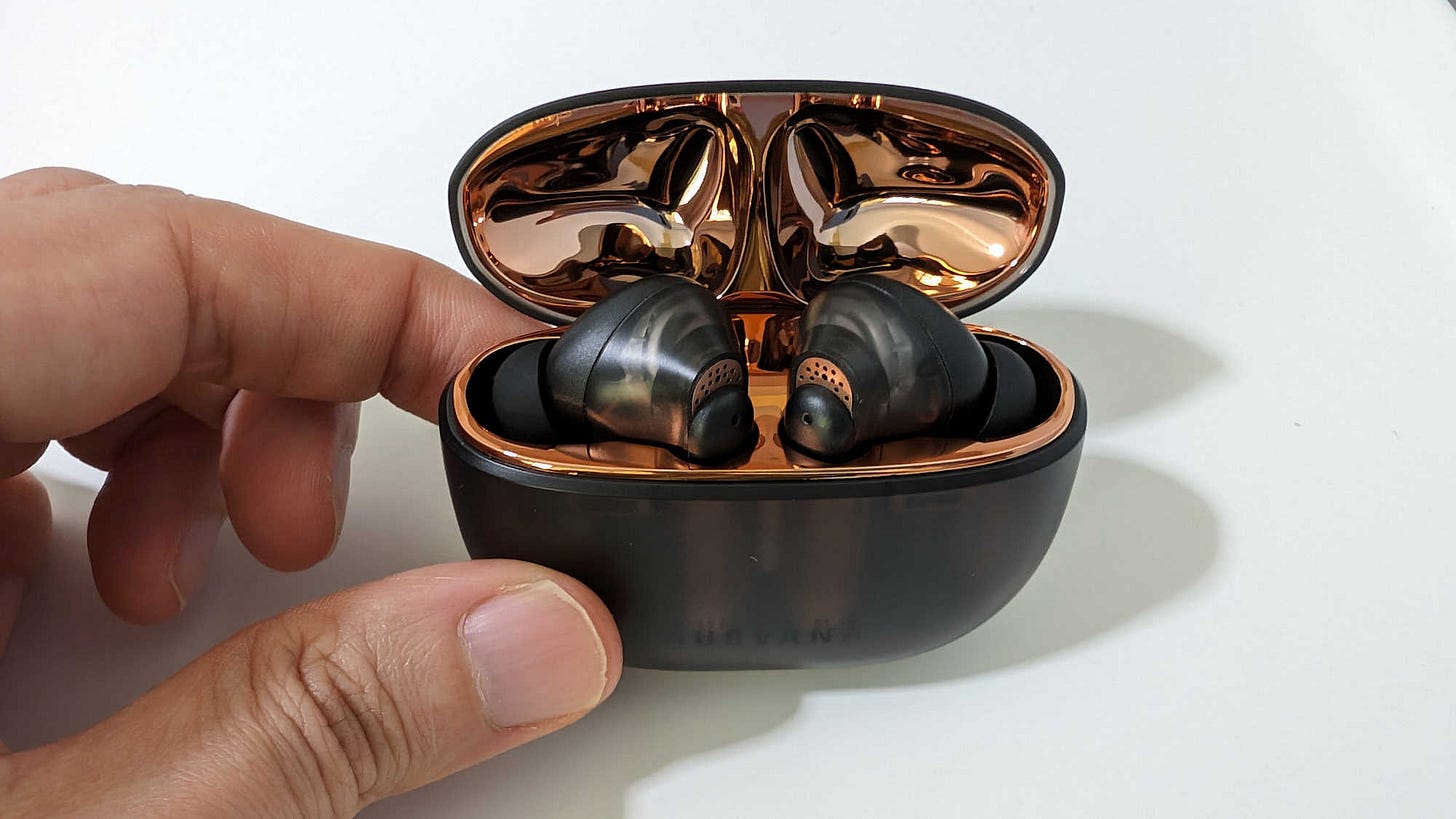Samsung’s flagship Galaxy S24 phones are set to debut this week with a big focus on AI. But Samsung won’t be the only smartphone maker hyping up AI this year. Thanks to the on-device generative AI capabilities of the Qualcomm Snapdragon 8 Gen 3 chip — likely to be used by top Android smartphones — you can expect AI to be translating, summarising, and more in upcoming smartphones.
That’s all fine and dandy. But the most interesting AI-powered device of 2024 so far — at least for me — is the Rabbit R1 (US$199), a pocket companion that promises to perform everyday tasks for you, like playing music, ordering food and rides, or planning a trip. The palm-sized device has a push-to-talk button, like a walkie-talkie, that lets you speak to it, like you’d with a voice assistant. It also has a camera that can look at real-life objects, and help with requests. For example, in the demo, the device came up with a recipe based on items it sees in your fridge.
The Rabbit R1 has been trained to use interfaces through what the company calls a Large Action Model (LAM). It’s also paired with a Large Language Model (LLM) to understand your spoken requests. It’s like having a version of ChatGPT that can interact with your apps and websites. So once you have connected the app — for example, by logging in to Spotify for your music — the R1 can start playing music from Spotify. It’s basically controlling the app for you. So you just tell R1 what to do, instead of clicking through the app yourself. Apparently, you can also train the R1 yourself to use new apps, websites or services that it isn’t familiar with. Like macros on steroids maybe. It also sounds like you can potentially create your own bot to play mobile games.
While I don’t see the R1 or other similar AI-powered devices replacing our smartphones just yet, I can see the appeal. It’s a step closer to the AI that we see in fiction, like Jarvis from Iron Man. And who wouldn’t want something like that? At the very least, it would be helpful for those who have trouble finding their way around a normal smartphone. Rabbit says it has sold out four batches of its preorder — the first is slated to ship by the end of March. Unfortunately, it currently only ships to a few countries (South Korea and Japan are the only Asian markets).
In other news, we tested a capable, all-in-one cooker, one of the first earbuds to use a new solid-state driver, and a remastered version of one of the best games in recent years.
With 11 different types of cooking modes, the Ninja Foodi 11-in-1 SmartLid Multi-Cooker (OL550) makes a good case for replacing all your other kitchen appliances. It’s easy to operate, and clean-up is simple, too. It will, however, take up a fair bit of your countertop space.
The Creative Aurvana Ace 2 uses a new solid-state driver that helps to produce a level of clarity and detail that’s surprising at its price (S$219). But there are some teething issues, and quirks that need some work. The noise cancellation is also mediocre, at best.
There will be plenty of talk about whether we need a remastered version of The Last of Us Part II. But this super-fan edition of the game not only adds plenty of extras, but a whole new roguelike survival mode that’s quite fun, and challenging.







